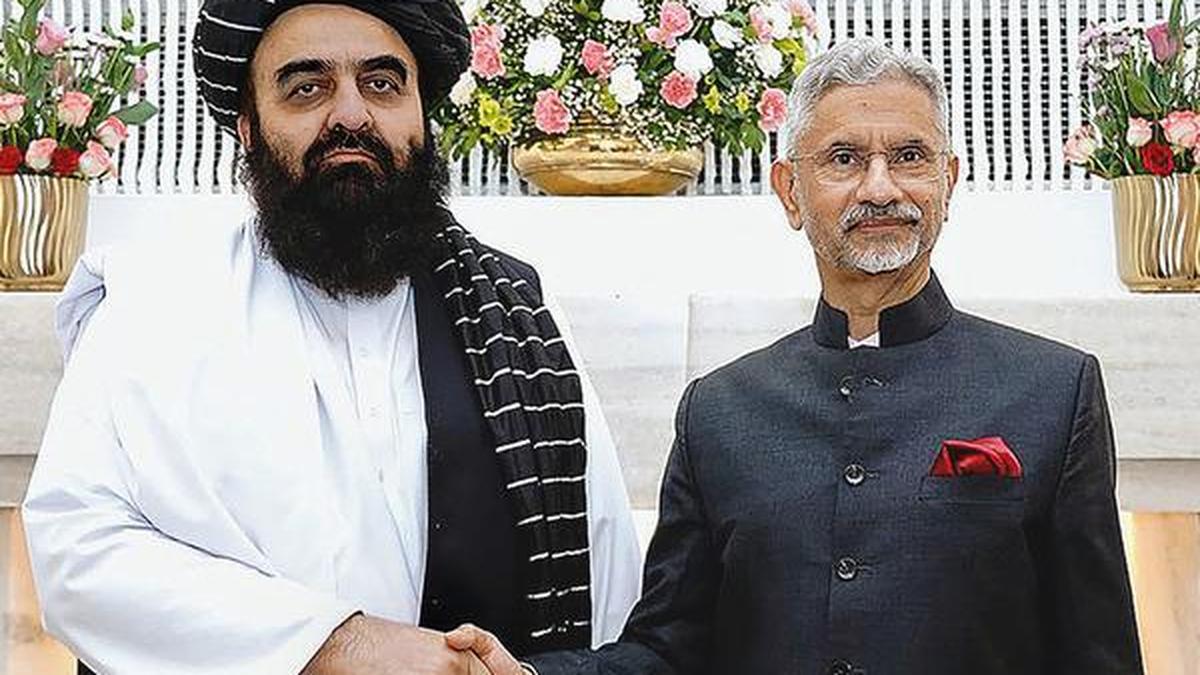Copyright thehindu

As the saying goes, the enemy’s enemy is a friend. When the Afghan Taliban were an insurgency, they were clients of the Pakistani military establishment. Now, they are the state in Afghanistan. Their return to power in Kabul also brought back old fissures between Pakistan and Afghanistan, two neighbours divided by a disputed 2,640-kilometre border, to the centre of inter-state relations. As tensions between the two rise, often spilling into cross-border clashes, India may be tempted to see the Taliban, its enemy’s enemy, as a ‘friend’. It may not be a coincidence that Pakistan bombed Kabul earlier in October, just as Taliban Foreign Minister Amir Khan Muttaqi was visiting India. Mr. Muttaqi’s visit, the highest-level contact between the Sunni extremist Taliban and India, was the clearest indication yet that both sides are keen to improve ties. India has since decided to upgrade its technical mission in Kabul to a full embassy and resume stalled infrastructure and welfare projects with Mr. Muttaqi giving his assurance that the Taliban regime “will not allow any group to use our territory against others”. The case for engagement is well known. When the Taliban, then backed by Pakistan, returned to Kabul in August 2021, India, which had backed anti-Taliban forces in the 1990s, faced the prospect of losing the influence it had built in Afghanistan over the previous two decades. The question before New Delhi was whether to remain engaged with the new rulers or distance itself from them. EXPLAINED | How are India-Taliban relations changing? India’s objectives Broadly speaking, India has three objectives when it comes to dealing with Afghanistan. First, it had invested some $3 billion in Afghanistan between 2001 and 2021 — after the collapse of the first Taliban regime. It seeks to protect those investments, and build on the goodwill it earned during the period. Second, unlike in the 1990s, New Delhi does not want Afghan soil to be used by anti-India militants. Third, it does not want the Taliban to become an external arm of Pakistan’s establishment, which would give Islamabad-Rawalpindi strategic depth in the region. As an Indian diplomat told this writer in 2021, soon after the Taliban’s reconquest, “India would like to explore the autonomy of the Taliban from their masters”. To meet these goals, India has opted for a policy of conditional and gradual engagement with Taliban 2.0. Mr. Muttaqi’s visit to New Delhi and the decision to upgrade the Indian mission in Kabul to an embassy suggest that India is expanding the scope of this conditional engagement. The dramatic deterioration in Pakistan-Taliban relations adds a new geopolitical dimension to India’s approach. These developments have prompted calls for India to move faster in formally recognising the Taliban regime. There is, indeed, a case for recognition. The Taliban appear more consolidated than they were in the 1990s, and unlike in the past, no regional power seems interested in backing anti-Taliban forces — at least for now. The National Resistance Front, the primary anti-Taliban group, remains weak, with its leadership in exile in Tajikistan. The Taliban’s most serious military challenge comes from the Islamic State-Khorasan, a transnational terrorist outfit that threatens regional security. Russia has formally recognised the Taliban, and China has exchanged ambassadors with Kabul. COMMENT | The perils of engaging with the Taliban Long-term risks While recognition of the Taliban could allow India to fast-track cooperation with the regime, further deepening Pakistan’s anxieties, it would also carry significant long-term risks. The Taliban, who emerged from the anarchy of the Afghan civil war in the early 1990s, have not fundamentally changed. Nor have they ever claimed to have changed — either ideologically or programmatically. To be sure, the Taliban are not the only totalitarian regime in the world, and states, even democracies, should do diplomacy with different political systems. But the Taliban’s totalitarianism is distinct. It is perhaps the only regime that bars girls from attending school beyond the primary level. It has enforced strict segregation between men and women in public spaces, and largely banned women from workplaces. The regime, headed by its reclusive Kandahar-based supreme leader Hibaitullah Akhundzada, and run by the Kabul Taliban, has maintained high levels of repression at a time when the economy is in serious trouble. Afghanistan’s economy has contracted by around one-third since the Taliban seized power. Nearly 22.9 million Afghans — almost half the population — require humanitarian assistance this year. The exclusion of women from the workforce and education will have economic and social consequences. While the Taliban claim to have improved security over the past four years, they have also overseen a near-collapse of the economy. Amid high-decibel repression and mounting economic distress, it is far from certain that the Pashtun, men-only regime of the Taliban has truly consolidated power in Afghanistan, a country of deep ethnic diversity that has seen almost continuous conflict since the mid-1970s. In the early 2000s, after the Taliban were toppled and the Islamic Republic was taking shape, Afghanistan enjoyed a period of relative calm and stability. Many believed that the country had embarked on a path towards democratisation and socio-economic modernisation. But it was only a matter of time before the Taliban re-emerged from the mountains of Pakistan’s tribal belt to challenge the republic. So today’s relative calm should not misguide anyone that the Taliban had won absolute lasting control over Afghanistan. It makes sense for India to adopt a wait-and-watch approach. EDITORIAL | Talking to Taliban: On India-Afghanistan ties Deep networks In their second stint, the Taliban have sought to project an image of having severed ties with transnational jihadist organisations. The Taliban learned a key lesson from 2001: it was not their repressive policies at home that led to their downfall but their open alliance with al-Qaeda. This time, they have adopted a more pragmatic posture. In public, their leaders insist that they will not allow transnational groups to use Afghan territory. Yet, this does not mean that the Taliban have genuinely severed ties with such groups. The Haqqani network, which has long maintained close ties with al-Qaeda, is now deeply integrated into the Taliban establishment. According to a recent report by a United Nations Security Council monitoring group, the Taliban have allowed al-Qaeda to consolidate “through safe houses and training camps scattered across Afghanistan”. It notes that the Taliban remain “the primary partner of all foreign terrorist groups operating in Afghanistan”, including al-Qaeda, Pakistani Taliban, Jaish-e-Mohammad, Lashkar-e-Taiba and the Islamic Movement of Uzbekistan. The only exception is the Islamic State-Khorasan, which opposes Taliban rule. For now, these groups have been allowed to operate quietly without posing an immediate security threat to Afghanistan’s neighbouring countries or the wider region. But if domestic pressures mount, and the Taliban’s grip on power weakens, these networks could easily resurface, because they haven’t given up their commitment to global jihadism. In that case, the enemy’s enemy may well turn out to be India’s enemy too. If India recognises the Taliban regime and allows the so-called Islamic Emirate to take over its embassy in New Delhi, that would grant the Taliban legitimacy they have long sought. It would also strengthen the Taliban’s regional standing and prompt more countries to do the same. But such a move would also shut one of the few remaining windows New Delhi can press the Taliban to reform. Rather than pursuing short-term realpolitik, India should adopt a long-term strategic approach. Faced with a hostile Pakistan across the border and a collapsing economy at home, the Taliban need India’s assistance far more than India needs the Taliban. While engaging the regime, both bilaterally and through regional and international mechanisms, New Delhi must urge the group to respect at least the fundamental freedoms of the Afghan people. If India’s interests lie in stability in Afghanistan, Afghanistan’s stability will ultimately depend on economic recovery, political inclusion and regional integration — not on the Taliban’s guns. stanly.johny@thehindu.co.in



